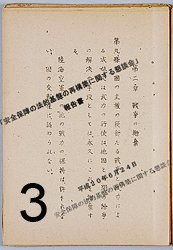(Initially published in the Japan Times, June 10, 2009)
A year ago this week, the Supreme Court of Japan issued a judgment that struck down a clause in the Nationality Act as being a violation of the Constitution. There are good reasons for everyone in Japan to celebrate that decision. While little noted outside of specialized legal journals at the time, the decision may have been the beginning of a more robust judicial protection of the right to equality in Japan.
The Nationality Act judgment was, of course, hailed as an historic decision — in part because it was only the eighth time the Supreme Court has struck down a law as unconstitutional; and in part because it would extend the benefits of nationality to tens of thousands of children born in Japan to Japanese fathers and foreign mothers who were not married. But much less noticed were the reasons of the court, and what that analysis meant for the right to equality itself.
Prior to this case, the courts of Japan employed a simplistic “reasonableness” test to determine if discrimination constituted a violation of the right to equality enshrined in Article 14 of the Constitution.

 full, this posting is less a summary and more a full report on the substance of this part of the report. There is much to criticize here, but the analysis is left for the fourth and final posting on the report.
full, this posting is less a summary and more a full report on the substance of this part of the report. There is much to criticize here, but the analysis is left for the fourth and final posting on the report.